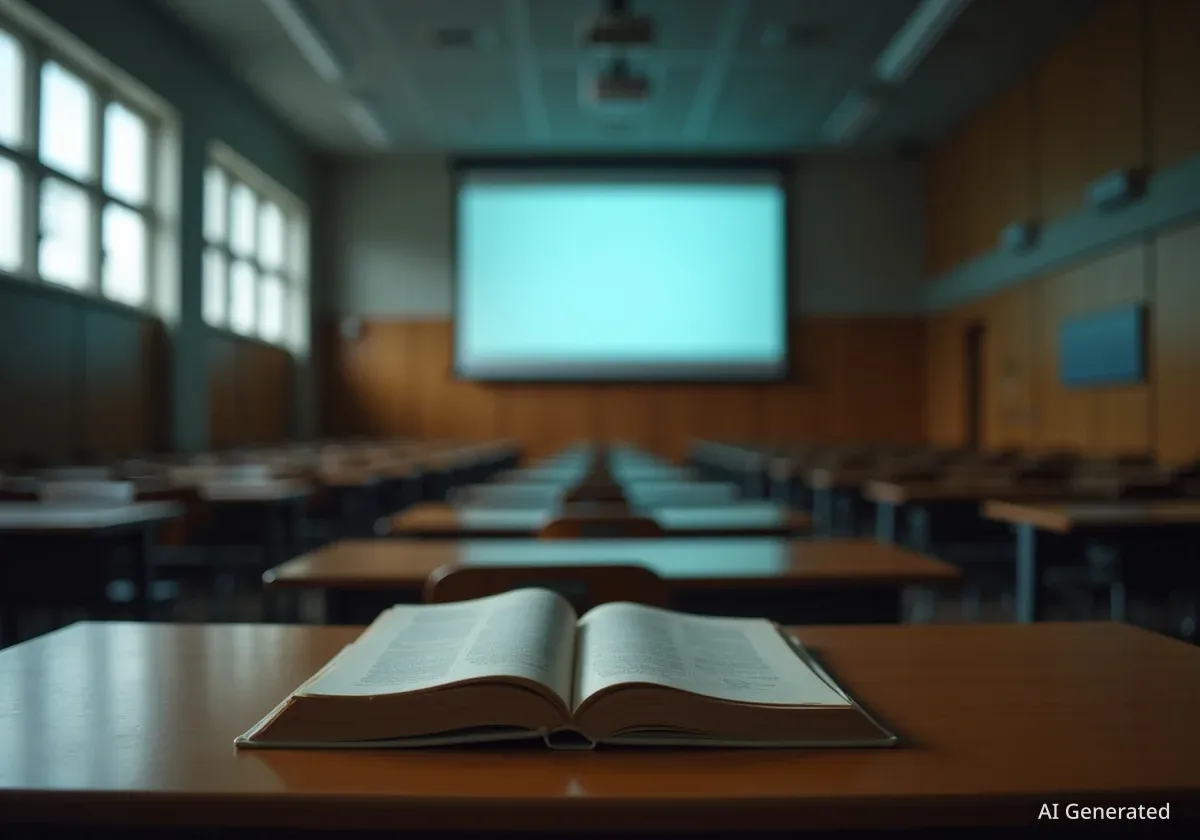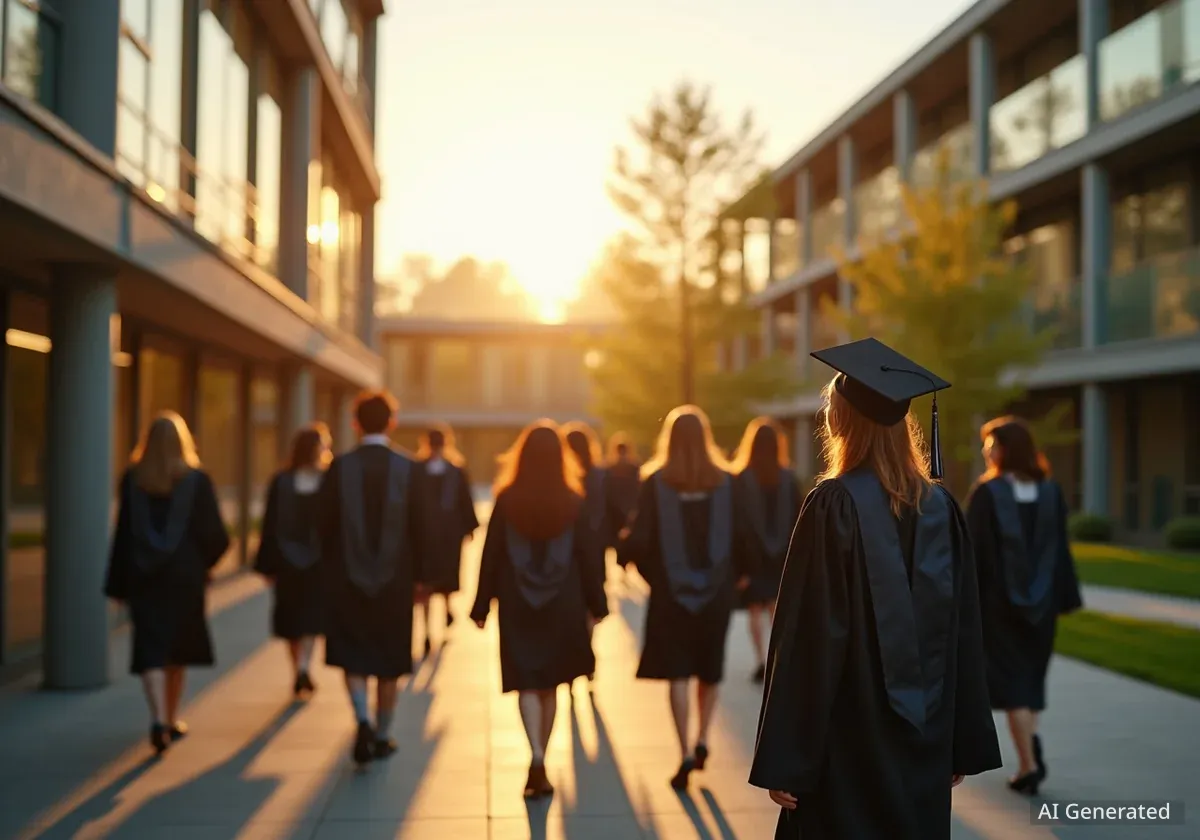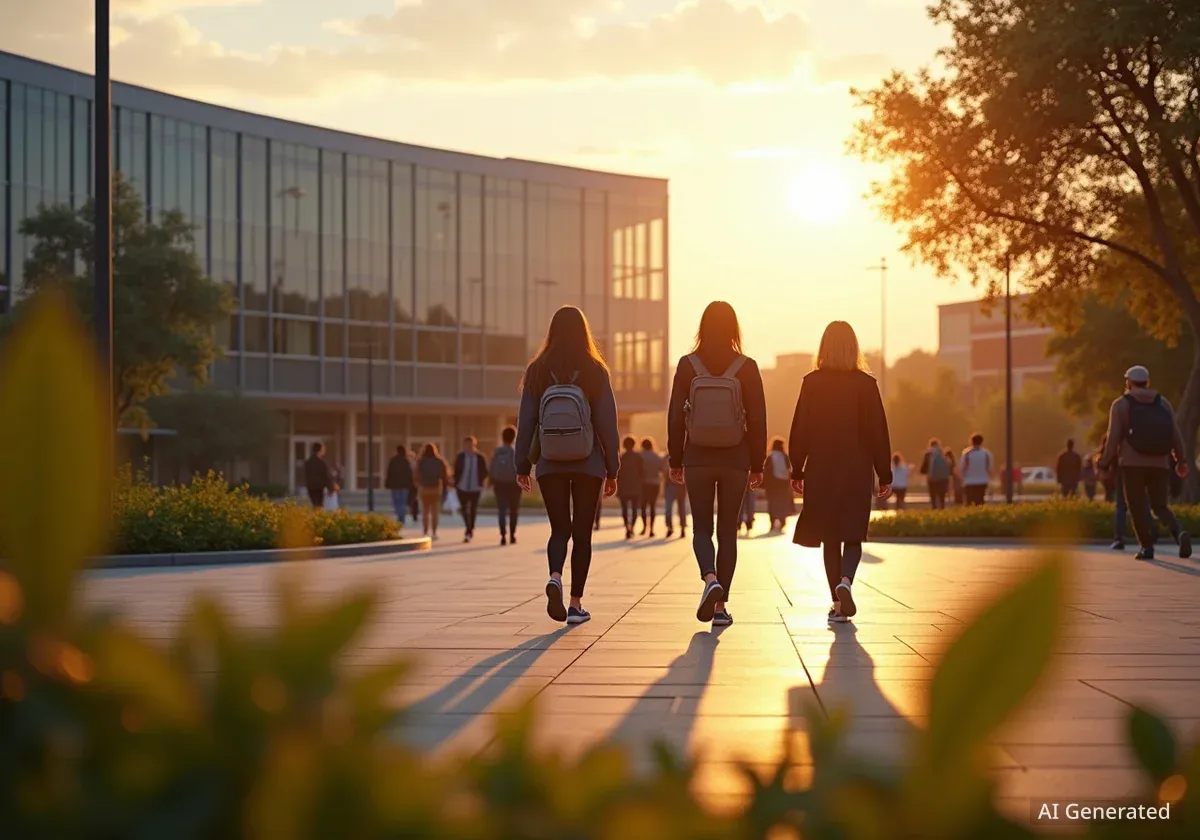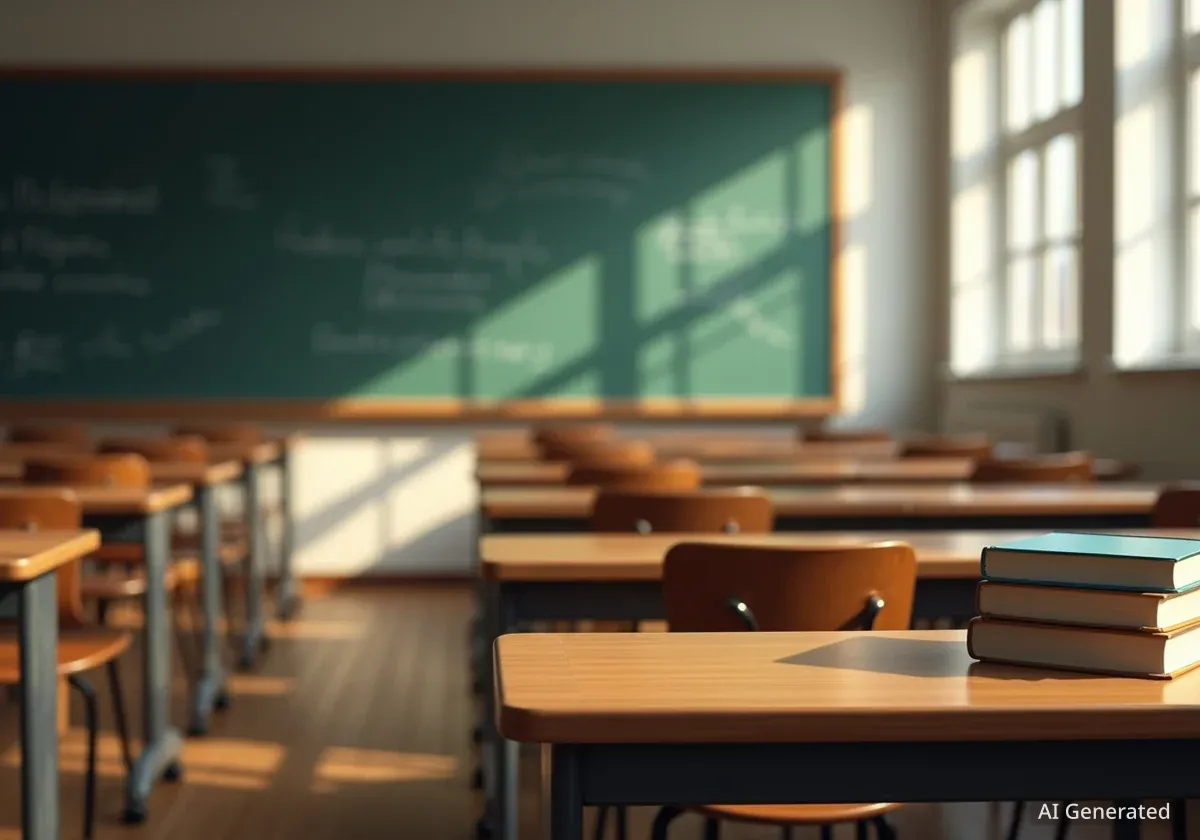A new report from a Harvard University faculty committee has identified a significant decline in student engagement, linking it directly to a sharp increase in grade inflation. The findings indicate that many students are skipping classes and avoiding challenging coursework, yet still receive high marks, raising concerns about the academic culture at the institution.
Key Takeaways
- A Harvard faculty committee found that students are skipping classes, completing less reading, and avoiding difficult discussions.
- The percentage of 'A' grades awarded at Harvard has risen from 40% to 60% since the pandemic.
- Faculty members cite grade inflation as a key reason students can succeed with minimal effort.
- In response, some professors are now tracking attendance and restricting electronic devices in class.
Declining Engagement in the Classroom
A group of seven Harvard faculty members, forming the Classroom Social Compact Committee, released a report detailing a noticeable shift in student behavior. According to their findings, a growing number of students are disengaging from the traditional academic experience.
The report, highlighted by The New York Times, states that many students do not attend lectures in person, often because professors make recordings available online. It also found that assigned readings are frequently skimmed or ignored entirely. This lack of preparation leads to a reluctance to participate in classroom discussions.
Furthermore, the committee observed that students often seem hesitant to engage with ideas that might conflict with their own. This avoidance of intellectual debate, combined with low participation, has prompted faculty to re-evaluate the university's learning environment.
The Impact of Technology and Recorded Lectures
The availability of recorded lectures has been identified as a major contributor to declining class attendance. Omosefe Noruwa, a pre-med student quoted by The Times, explained the practical effect of this policy.
"If they can get good grades without attending class, they stop," Noruwa said, capturing the sentiment that students will often choose the path of least resistance if academic consequences are absent.
Economics professor David Laibson, who co-chaired the committee, also pointed to the pervasive use of smartphones as a significant barrier to learning. He noted that even when students are physically present, their attention is often divided. "You should know when you’re looking at your phone you’re not really hearing what I’m thinking," he stated.
Long-Standing Challenges
Professor David Laibson noted that issues like procrastination and students over-scheduling their activities have been challenges in higher education since at least the 1980s. However, the report suggests that modern technology and rising grade inflation have significantly worsened these pre-existing problems.
The Data Behind Grade Inflation
The committee's report argues that grade inflation is the primary enabler of this disengaged academic culture. Without the pressure to earn high marks through rigorous effort, students are less motivated to participate fully in their education.
A Grades on the Rise
According to Amanda Claybaugh, Harvard’s dean of undergraduate education, the data shows a clear trend. Before the pandemic, 40% of all grades given to undergraduate students were A's. That figure has since jumped to 60%.
This statistical increase suggests that high grades are becoming more common, potentially lowering the bar for what constitutes excellent academic performance. The report concludes that this trend allows students to "coast through anyway," even with minimal engagement.
This situation creates a cycle where students can pass courses without deeply engaging with the material, which in turn reinforces behaviors like skipping class and avoiding difficult intellectual work. Faculty are concerned this prevents students from developing critical thinking skills.
Harvard's Institutional Response
In light of the committee's findings, Harvard's administration and faculty have begun implementing changes to address the issue. Hopi Hoekstra, the dean of the faculty of arts and sciences, acknowledged that the report presented the university with "some hard truths about our learning culture."
The report has prompted immediate action in the fall semester. Some of the measures being introduced include:
- Taking Attendance: Professors are being encouraged to track student attendance to promote in-person participation.
- Restricting Devices: Some classes now require students to put away electronic devices like laptops and smartphones to improve focus.
- Encouraging Debate: The university has added a new essay question to its application process to identify students who are open to engaging with differing viewpoints.
A New Application Question
The new essay question asks applicants to write 150 words about a time they had a strong disagreement with someone. This change is aimed at fostering a campus environment where the free exchange of ideas is valued and to signal to prospective students that intellectual engagement is a priority.
These measures represent a concerted effort to shift the campus culture back toward one of active learning and intellectual curiosity. The university aims to ensure that a Harvard degree reflects genuine academic achievement and intellectual growth, not just the accumulation of high grades.





